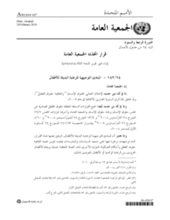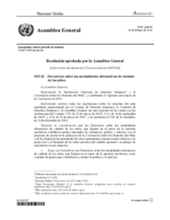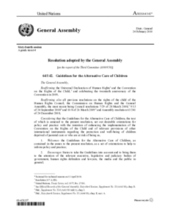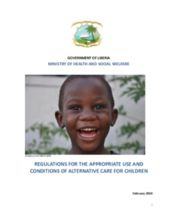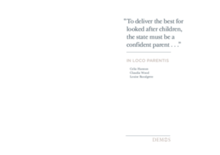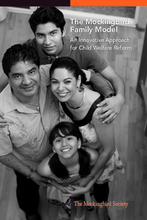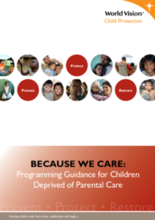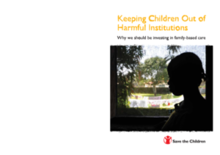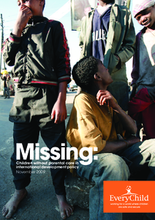Displaying 531 - 540 of 608
The Guidelines for the Alternative Care of Children were endorsed by the United Nations General Assembly on 20th November 2009, in connection with the 20th anniversary of the UN Convention on the Rights of the Child. This momentous day marked a culmination of years of discussions and negotiations led by the Government of Brazil, in partnership with Group of Friends and civil society.
Las directrices sobre las modalidades alternativas de cuidado de los niños fueron endosados por la Asamblea General de las Naciones Unidas el 20 de noviembre de 2009, en conexión con el 20a aniversario de la Convención de los Derechos del Niño de la ONU.
The Guidelines for the Alternative Care of Children were endorsed by the United Nations General Assembly on 20th November 2009, in connection with the 20th anniversary of the UN Convention on the Rights of the Child.
Regulations and tools designed to create the basis for reforming welfare institutions for the safe and appropriate administration of alternative care.
This report by the UK-based independent think tank, Demos, considers what the UK care system would look like if it were reconfigured to avoid the delay, instability, and abrupt transitions many young people experience. It demonstrates how this type of system could also be less costly to the states in both the short and long term.
From preventative strategies to transitional and permanency solutions, the Mockingbird Family Model (MFM) offers a comprehensive support structure for families and children across the continuum of the child welfare experience. This resource briefly describes the MFM and its current activities.
This book features individual empirical studies on the outcomes and progress made for children in foster care around the world.
Provides recommendations for World Vision and partner agencies on general alternative care principles and analysis of alternative care models.
Examines the latest evidence of the harm institutional care can cause to children. It explores why governments and donors continue to prioritize institutional care, despite the harm it can cause.
Explores the negative impacts of loss of parental care on children. Advocates for reform for children based on assertion that failure to keep children in families, out of residential institutions and off the streets, will be another barrier to the achievement of the Millennium Development Goals

